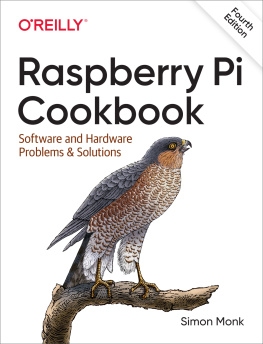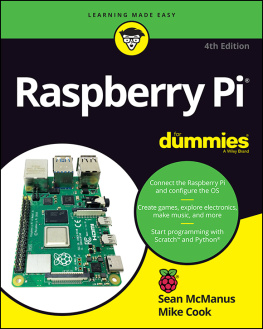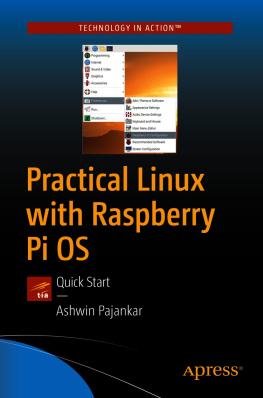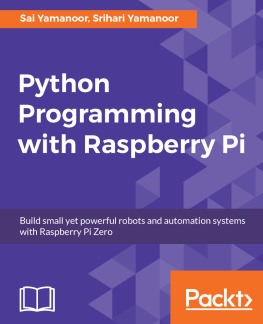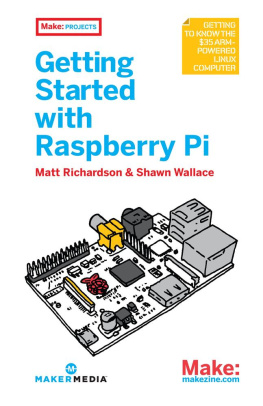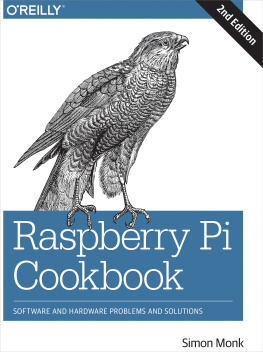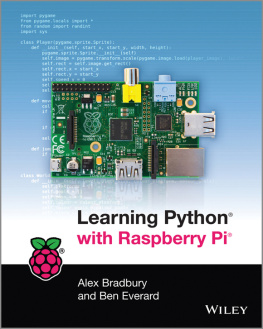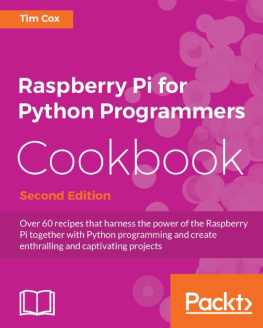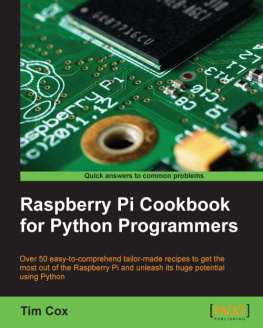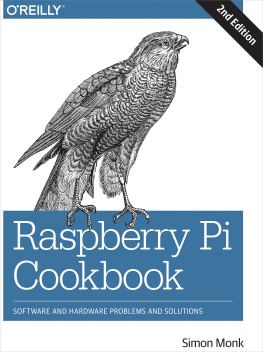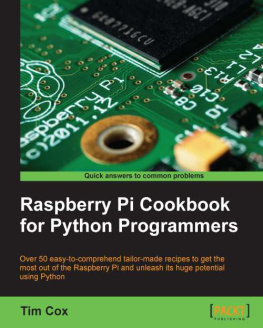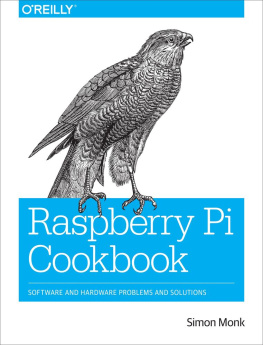To my late mother Anne Kemp (19242022), whose good cheer and ability to laugh in the face of adversity was an example to us all
Preface to the Fourth Edition
Launched in 2011, the Raspberry Pi has found a role both as a very low-cost Linux-based computer and as a platform for embedded computing. It has proven popular with educators and hobbyists alike.
As of this writing, more than 40 million Raspberry Pis have been sold. The Raspberry Pi 4 with an option of 8 GB of memory makes the Raspberry Pi more than powerful enough to use as a replacement for a desktop computer, and the Pi 400 with its built-in keyboard makes a very capable replacement for a desktop computer.
The availability of open source Linux software for internet browsing, email, office suites, and photo editing is set to make the Raspberry Pi even more popular.
Even the latest Raspberry Pi 4 and Pi 400 still includes the general-purpose input/output (GPIO) pins that allow the hobbyist to add their own electronic contraptions to the Raspberry Pi.
This edition has been thoroughly updated to encompass the new models of Raspberry Pi, as well as the many changes and improvements to its Raspberry Pi OS. In particular you will find new chapters on:
- Machine Learning
- Raspberry Pi Pico and Pico W
This book is designed so that you can read it linearly, as you would a regular book, or access recipes at random. You can search the table of contents or index for the recipe that you want and then jump directly to it. If the recipe requires you to know about other things, it will refer you to other recipes, rather like a cookbook might refer you to base sauces before showing you how to cook something fancier.
The world of Raspberry Pi moves quickly. With a large, active community, new interface boards and software libraries are being developed all the time. In addition to examples that use specific interface boards or software, the book also covers basic principles so that you can have a better understanding of how to use new technologies that come along as the Raspberry Pi ecosystem develops.
As you would expect, a large body of code (mostly Python programs) accompanies the book. These programs are all open source and available on GitHub. For most of the software-based recipes, all you need is a Raspberry Pi. I recommend a Raspberry Pi 3 or 4 model B. When it comes to recipes that involve making your own hardware to interface with the Raspberry Pi, I have tried to make good use of ready-made modules as well as solderless breadboard and jumper wires to avoid the need for soldering.
If you want to make breadboard-based projects more durable, I suggest using prototyping boards with the same layout as a half-size breadboard, such as those sold by Adafruit and elsewhere, so that the design can easily be transferred to a soldered solution.
Using This Book
The cookbook style of this book means that it is not a book that you must read in order from front to back. The book is made up of individual recipes grouped into chapters. Where a recipe needs you to have prior knowledge of some other topic, the recipe will send you off to another recipe for that topic.
Youll probably find that you jump around from recipe to recipe as you try to get your Raspberry Pi project to do what you want.
I have mapped out a few paths through the book that I think would be useful to different types of readers:
Complete Raspberry Pi beginnerRead most of Chapters and then wander at will.Python learnerIf you want to use your Raspberry Pi to learn how to program in Python, work your way through Chapters . You will probably find that you need to jump off to various recipes in earlier chapters.Electronics hobbyistIf you dont already have them, youll need to pick up some Python skills by working through Chapters before picking out some interesting recipes in the later chapters to start making yourself some Raspberry Pi electronics projects.
Conventions Used in This Book
The following typographical conventions are used in this book:
ItalicIndicates new terms, URLs, email addresses, filenames, and file extensions.
Constant widthUsed for program listings, as well as within paragraphs to refer to program elements such as variable or function names, databases, data types, environment variables, statements, and keywords.
Constant width boldShows commands or other text that should be typed literally by the user.
Constant width italicShows text that should be replaced with user-supplied values or by values determined by context.
Tip
This icon signifies a tip, suggestion, or general note.
Warning
This icon indicates a warning or caution.
Note
This icon points you to the related video for that section.
Using Code Examples
Supplemental material (code examples, etc.) is available for download at https://github.com/simonmonk/raspberrypi_cookbook_ed4.
This book is here to help you get your job done. In general, if example code is offered with this book, you may use it in your programs and documentation. You do not need to contact us for permission unless youre reproducing a significant portion of the code. For example, writing a program that uses several chunks of code from this book does not require permission. Selling or distributing examples from OReilly books does require permission. Answering a question by citing this book and quoting example code does not require permission. Incorporating a significant amount of example code from this book into your products documentation does require permission.

